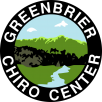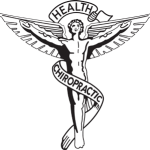Disc Pain
Disc Damage
Herniated or slipped disc.
That “OUCH!” that comes after sudden or unfamiliar movement is most likely caused by a herniated or slipped disc.
The pain or discomfort can also come on gradually. Either way, it hurts.
Why does a herniated disc hurt?
The bones of the spines are called vertebrae and there are 33 of them.
Discs are the spacers between the vertebrae of the spine. They are pads that allow you to move your spine in different ways. They act as shock absorbers from the impact of spinal column movement. Have you ever ridden in a car with bad shocks? It is extremely uncomfortable as you go over bumps. This is similarly the problem when discs are not working properly, and your vertebrae (individual bones) crash together.
The center of a spinal disc (nucleus) is jelly-like and soft. It is surrounded by a tougher exterior called an annulus. When a portion of the nucleus pushes through a hole in the annulus, a disc is considered ruptured or herniated. A herniated disc can occur anywhere in the spine and irritate the nearby nerves. The area of the body, relative to the irritated nerves, is usually affected. This may result in numbness, weakness or pain in the arms or legs.
Simply stated, Herniation or slipped disc occurs when the disc protrudes through the outer casing.
How can you tell if you have a herniated disc?
If the herniated disc is in the lower back (which is more usually the case), the person may feel pain, numbness or tingling in the thigh and calf area (and sometimes even the feet). These manifestations can radiate down the legs.
The symptoms usually get worse if you move. Even a slight movement like sneezing can hurt.
You might have difficulty in walking or carrying items because of weakness caused by irritated nerves.
A chiropractor can help determine if you have a herniated disc through a comprehensive chiropractic examination.
What causes a herniated disc?
Often, a person doesn’t know what caused their herniated disc, but here are some known factors that can contribute to a herniated disc:
- Damage from aging or long-term poor health habits
- Movements that are continuously hard on the back (can happen with some professions)
- Excessive weight
- Poor or improper lifting methods.
Over time, as the problem worsens, the disc can be described as degenerated.
What is a degenerated disc?
A degenerated disc is literally wasting away, dying.
This can cause pain in the area of the damage. It can cause pain to shoot down the arms and hands. Similarly, it can cause the pain to travel down the legs and possibly into the feet.
In short, a herniated or degenerated disc can be uncomfortable!
If you are suffering from back pain, chances are you are ready to do something about it. But what?
There are two options of treatment for injured discs:
Chiropractic or major surgery.
Before you reach for drugs or schedule surgery, see if a chiropractor can help. The non-invasive option could mean no drugs, no surgery and no permanent scarring and tissue damage. In addition to chiropractic treatment, we will teach you better health and physical habits to help you take control of the situation.
You can’t get a “replacement” spine. Before you arrange to have surgery for the one spine you have, check out the option of non-invasive chiropractic.
Call 304- 645-6080 to book an appointment
Future Doc: Unfathomably Complex
I recently read an article in National Geographic entitled the
FUTURE DOC: NIDDENS SERTS BY DR. TIM PENCE
Due to my favorite activities lolly gagging and procrastinating, I
Wednesday, May 20: Live “Stress” Free!
On Wednesday, May 20th we invite you to learn how
Wednesday, May 20: Stress Free Living Seminar
Please join me on Wednesday, May 20th for my nutrition




